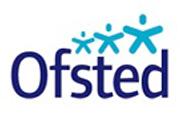Taster courses key to Apprenticeship success

An Ofsted report, published last Friday, says apprentices are more likely to complete their training programmes, and do so more quickly, when they have been screened and tested for selection and given taster courses at school.
The report, ‘Learning from the best: examples of best practice from providers of apprenticeships in underperforming areas’, involved visiting 39 providers to identify the key features of successful provision in three underperforming vocational areas.
Apprenticeships in the hospitality, motor vehicle and retail industries are improving at a slower rate than in other areas and continue to fall behind the national average completion rate of 70%. Ofsted also investigated two historically underperforming areas – care and construction – that have improved to the national average since 2005.
Launching the report, Her Majesty’s Chief Inspector Christine Gilbert said: “The value of a good apprenticeship cannot be underestimated. I urge all employers and training providers to use this report and the examples of best practice it contains.
“It is a practical guide designed to help providers and employers support apprentices with stretching and realistic training, setting themselves on their way to highly successful careers.”
The report found that careful assessment of candidates during the selection process to ensure they are good fits for training programmes, followed by tailored learning plans once they are in the workplace, are more likely to result in learners completing apprenticeships. One such example saw an employer in the hospitality industry offer school children experience in a commercial training kitchen, giving them a taste of what it would be like to work in the industry.
It also stresses the importance of support from mentors – ideally former apprentices themselves – and the need for regular progress monitoring by assessors in the workplace, and adds that ensuring that candidates have the same assessor or training officer throughout the programme makes a difference.
Thee report also notes that employers have become more focused on key skills, with several case studies showing the impact of better literacy and numeracy training. One example of this was a national supermarket which found that literacy training was essential for completion of food handling courses; similarly, a mobile phone company found that a focus on numeracy meant trainees could be given the responsibility of calculating customer phone tariffs.
The full report can be downloaded from Ofsted’s website.
Nathan Brown






Responses